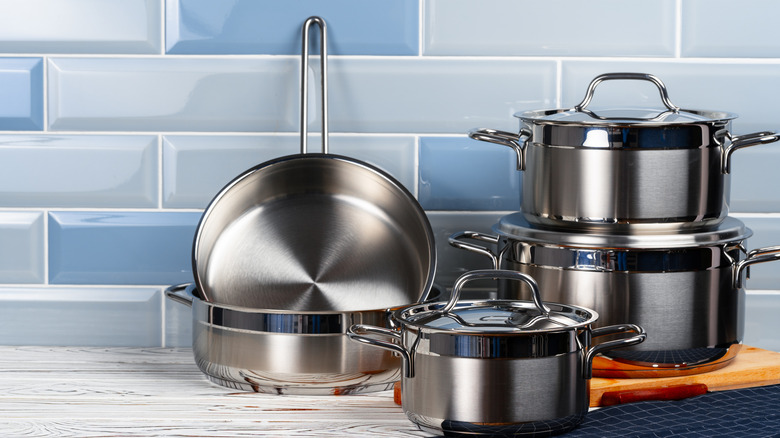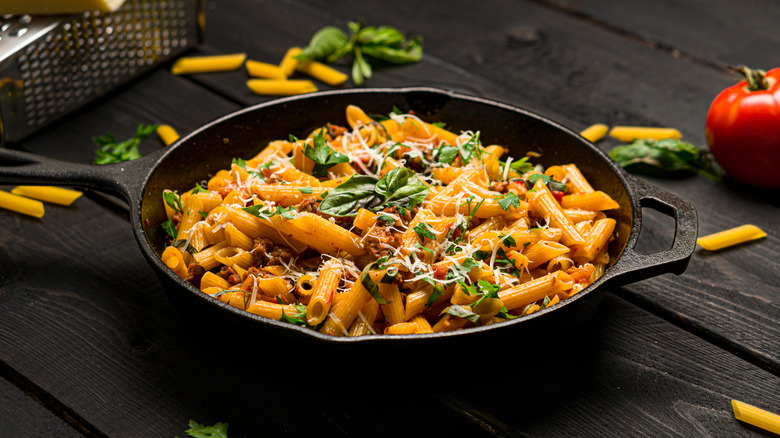What You Need To Know About Aluminum Cookware
Aluminum cookware is popular for myriad reasons, including its lightweight nature, ease of cleaning, and at an average of $40 per pan, its great, affordable price. The pros here are obvious, however, purchasing and preparing food with aluminum cookware does come with its cons, namely, pans will only last about three to five years, the surface will react with certain acidic foods, and some studies have associated the use of aluminum cookware with Alzheimer's disease (via Oven Spot). However, "foods cooked in aluminum pots are generally considered to be safe," the CDC states, according to Discover Magazine.
Cook's Illustrated, which conducted an experiment regarding the amount of aluminum that transfers into the food when cooking with aluminum pans, reports that they noticed an "unpleasant metallic taste" in both tomato sauce and lemon curd when these foods were prepared. The publication advises against using the metal with acidic ingredients such as tomatoes, vinegar, and anything citrus-based, however, it also notes that treating the pans with a nonstick or stainless steel coating prevents the aluminum from seeping into the food.
How aluminum cookware measures up against the competition
Clean Eating Kitchen ranked aluminum cookware as No. 2 on its list of "Safest and Healthiest Cookware Options for 2021" (ceramic cookware was listed as No. 1), citing both its aforementioned cost-friendly nature and its ability to conduct heat well, thus uniformly cooking the food.
The Oven Spot, on the other hand, while explaining the pros of aluminum cookware, also compares them with the pros of cast iron cookware. The comparable pans each have their own assets, however, cast iron pieces can last a lifetime (75-100 years), are often considered safer than aluminum, because it transfers only iron into food, which can have health benefits in limited amounts, and they are good heat conductors.
In all, in choosing a type of cookware, whether it be aluminum or ceramic, nonstick, cast iron, stainless steel, or non-stick, it's important to know the pros and cons of each type when it comes to ease of use and maintaining, health, and safety. So do your research, pick a pan, and get cooking!

